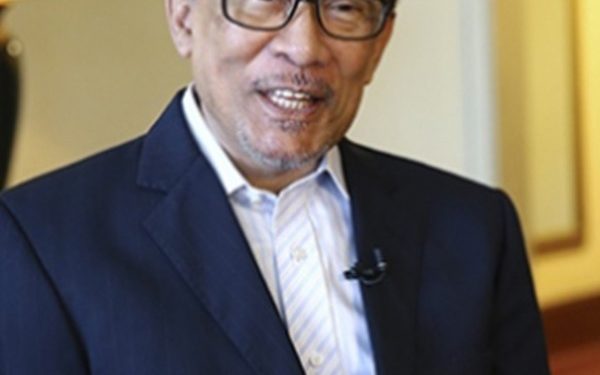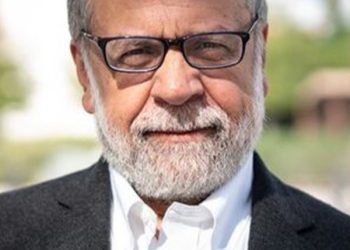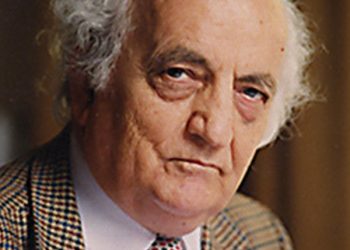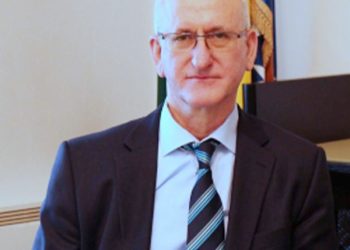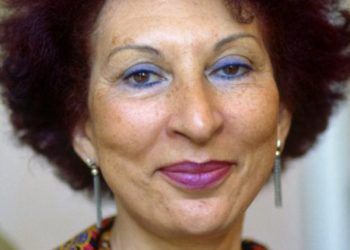Anwar Ibrahim was born in Penang in the Malay Union in 1947. His father was Ibrahim Abdul Rahman, who began his career in Penang, was a United Malay National Organization (UMNO) parliamentarian in the Seberang Perai Central Parliament from 1959 to 1969 and was Parliamentary Secretary to the Ministry of Health from 1964 to 1969 – until his retirement. His mother was Che Yan Hussein, a housewife who later became active in UMNO grassroots politics. Anwar Ibrahim completed his education from primary school to high school in Penang, where he was born, and began his rise to leadership by studying Malay Studies at the University of Malaya.
After attracting the attention and discovery of Mahathir Mohamad with his potential and active work, Anwar Ibrahim was invited to UMNO by Prime Minister Mahathir in 1982. Ibrahim accepted the invitation and started to climb the political ladder as Minister of Culture, Youth and Sports in 1983, Minister of Agriculture in 1984 and Minister of Education between 1986 and 1991. In 1997, he was appointed acting prime minister by Mahathir for two months. Anwar Ibrahim’s evolution took place precisely after he was entrusted with this position, which required him to toe Mahathir’s line. Believing that the 1997 economic crisis, known as the “Southeast Asian Crisis”, which started in Thailand and had a domino effect across Asia, required the use of the International Monetary Fund (IMF), Anwar Ibrahim reduced government spending and ministerial salaries. He created an austerity package that would also affect mega-projects, the country’s economic development strategy. He began to fall out with the prime minister as their views on crisis management began to clash.
In 1998, he was dismissed as deputy prime minister due to various accusations against him and shortly afterwards he was imprisoned for the charges. After 6 years in prison, Anwar Ibrahim was acquitted in 2004. In 2008, he was included in TIME magazine’s list of the 100 most influential people in the world. Anwar was sentenced to six years in prison and then to an additional 9 years. Until 2008, he was banned from politics. While in prison, Anwar Ibrahim took advantage of a legal loophole in the system and founded a multi-ethnic reform movement against UMNO, first called KeADIL, led by his wife Wan Aziza Wan Ismail. In 2003, he persuaded another opposition party, the “People’s Party of Malaysia”, known as PRM, to unite with another opposition party, the “Malaysian People’s Party”” under the umbrella of the reform movement to form Parti keADILan Rakyat, the People’s Justice Party.
In 2008, his multi-ethnic party was joined by two other opposition parties, PAS-Malaysia Islamic Party and DAP-Democratic Action Party, to form the PR-’People’s Alliance’, a coalition bloc opposed to UMNO. Anwar Ibrahim’s political ban was to last until April 14, 2008, was unable to participate in the elections after Prime Minister Abdullah Bedouin dissolved parliament and state assemblies and called elections as early as March 8. Anwar Ibrahim handed over the office to his wife on August 28, and she was replaced by Wan Aziza Wan Ismail. Shortly before the 2014 elections, an appeals court overturned his 2012 acquittal on renewed allegations and he was sentenced to five years in prison. Mahathir, 92, has also said that he would resign after two years, leaving the office to Anwar. In one of his first acts in office, Mahathir petitioned Sultan Mohamad. On May 11, 2018, the king announced that he had accepted the request.
References
Malezyalı Politikacı Enver İbrahim: Türkiye, İslam Dünyasının Vicdanının Sesidir. (2018, December 3). Crimea News Agency. Retrieved March 21, 2023, from https://www.qha.com.tr/gundem/malezyali-politikaci-enver-ibrahim-turkiye-islam-dunyasinin-vicdaninin-sesidir-175311
Yakut, N. (2023, March 14). Bir Reformistin Evrimi: Enver i̇brahim. Retrieved March 21, 2023, from https://www.gzt.com/mecra/bir-reformistin-evrimi-enver-ibrahim-3367757





































